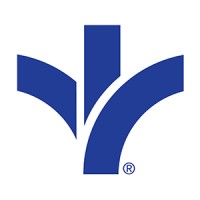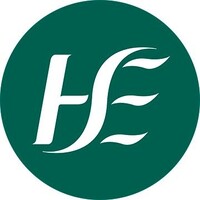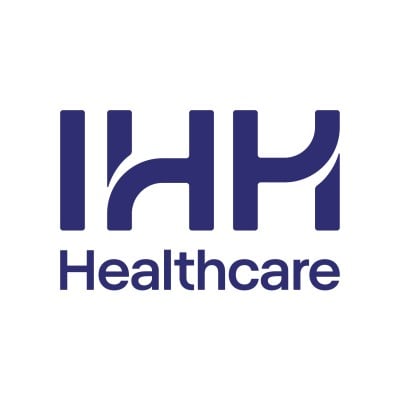Company Details
providence-institute-for-human-caring
None employees
1,011
62
providence.org
0
PRO_1264806
In-progress


Providence Institute for Human Caring Company CyberSecurity Posture
providence.orgThe Institute for Human Caring transforms healthcare to make it more personal and less transactional. Email us at [email protected] to find out more.
Company Details
providence-institute-for-human-caring
None employees
1,011
62
providence.org
0
PRO_1264806
In-progress
Between 650 and 699

 PIHC Global Score (TPRM)
PIHC Global Score (TPRM)XXXX

Description: Covenant Health Data Breach Exposes Personal and Medical Data of 478,000 Individuals Covenant Health, a Massachusetts-based healthcare provider operating across six states, confirmed a significant data breach affecting 478,188 individuals after a cyberattack in May 2025. The incident, discovered on May 26, involved unauthorized access to sensitive patient information, including names, dates of birth, addresses, Social Security numbers, medical record numbers, health insurance details, and treatment records. The attack, claimed by the Qilin ransomware group in June 2025, reportedly resulted in the theft of 1.3 million files (850 GB). The stolen data was later published online, suggesting Covenant Health did not pay the ransom. The organization initially reported only 7,800 affected individuals to the Maine Attorney General’s Office in July but revised the figure to 478,188 in a December 31 update after completing its investigation. Covenant Health serves patients in Massachusetts, Maine, New Hampshire, Pennsylvania, Rhode Island, and Vermont, making this one of the largest healthcare breaches in recent months. The delayed disclosure and underreported initial impact highlight the challenges in accurately assessing the scope of such incidents.
Description: ESO Solutions, a key software provider for healthcare and emergency services, was the victim of a ransomware attack. This cyberattack led to unauthorized data access and encryption of various company systems. The breach exposed a variety of personal information, depending on what patients had shared with their healthcare providers using ESO’s software. Compromised data includes: Full names Birth dates Phone numbers Patient account and medical record numbers Injury, diagnosis, treatment, and procedure details Social Security Numbers. It was confirmed that this breach affected data belonging to patients associated with ESO’s client hospitals and clinics in the U.S. To help mitigate risks, ESO is offering a year of identity monitoring services through Kroll to all notified individuals.
Description: A ransomware attack occurred against ESO Solutions, a significant software provider for emergency services and healthcare. This incident resulted from unauthorised data access and system encryption across many enterprise platforms. Depending on the information patients have shared with their healthcare providers using ESO's software, a range of personal data was exposed in the hack. Among the compromised data are: complete names dates of birth Numbers to call Numbers for patient accounts and medical records Details of the injury, diagnosis, treatment, and procedure, and Social Security numbers. It was established that patient data connected to U.S. hospitals and clinics that ESO serves as a client was compromised. All notified parties will receive a year of identity monitoring services from Kroll through ESO to assist in reducing risks.
Description: Saint Joseph’s Healthcare System suffered a security breach that compromised some employees' personal information. The healthcare was targeted in a phishing scam that led to the unintentional disclosure of around 5,000 employees' information, including social security numbers. The system notified the federal authorities to investigate the incident.
Description: The California Office of the Attorney General disclosed a data breach at Providence Saint Joseph Medical Center on March 11, 2015, stemming from an incident on November 1, 2014. The breach involved the inadvertent exposure of medical billing records, affecting an undisclosed number of individuals. Compromised data included demographic details, billing information, and Social Security numbers (SSNs) highly sensitive personal identifiers. While the exact cause (e.g., misconfigured systems, human error, or third-party mishandling) was not specified, the exposure posed significant risks of identity theft, financial fraud, and reputational harm to the affected patients. As a healthcare provider, the center’s failure to safeguard such data violated patient trust and potentially violated regulatory frameworks like HIPAA (Health Insurance Portability and Accountability Act). The breach underscored vulnerabilities in handling protected health information (PHI), though no evidence of malicious exploitation (e.g., ransomware or targeted cyberattack) was reported.
Description: The California Office of the Attorney General reported on June 12, 2014, that Santa Rosa Memorial Hospital experienced a data breach on June 2, 2014, involving a stolen thumb drive containing personal information related to X-rays, affecting an unspecified number of individuals. The compromised information included names, medical record numbers, dates of birth, and service details, but did not include financial information.


No incidents recorded for Providence Institute for Human Caring in 2026.
No incidents recorded for Providence Institute for Human Caring in 2026.
No incidents recorded for Providence Institute for Human Caring in 2026.
PIHC cyber incidents detection timeline including parent company and subsidiaries

The Institute for Human Caring transforms healthcare to make it more personal and less transactional. Email us at [email protected] to find out more.


Founded in 1872, St. Luke’s University Health Network (SLUHN) is a fully integrated, regional, non-profit network of more than 23,000 employees providing services at 16 campuses and 350+ outpatient sites. With annual net revenue of $4 billion, the Network’s service area includes 11 counties in two s
Prisma Health is the largest not-for-profit health organization in South Carolina, serving more than 1.2 million patients annually. Our facilities in the Greenville and Columbia surrounding markets are dedicated to improving the health of all South Carolinians through improved clinical quality, acce

King Faisal Specialist Hospital and Research Centre (KFSH&RC) is a 2415 -bed tertiary/quaternary care hospital with facilities in Riyadh, Jeddah & Madinah in the Kingdom of Saudi Arabia. offering Established in 1970 on land donated by the late King Faisal Bin Abdulaziz, in the capital city of Riya

Bon Secours Health System, Inc. based in Marriottsville, Maryland, is a $3.2 billion dollar not-for-profit Catholic health system that owns, manages or joint ventures 18 acute care, 5 long term care, 4 assisted living, 6 retirement communities/senior housing, 14 home care and hospice services, and o

Sanford Health is the largest rural health system in the U.S. Our organization is dedicated to transforming the health care experience and providing access to world-class health care in America’s heartland. Headquartered in Sioux Falls, South Dakota, we serve more than one million patients and 220,0
From specializing in transplants and pediatric cancer to solving undiagnosed diseases, we know solving the most complex problems prepares us to solve any problem. We are committed to excellence in patient care, research, and medical education and training. We thrive on challenges, embrace collaborat

Our purpose is to provide safe, high quality health and personal social services to the population of Ireland. Our vision is a healthier Ireland with a high quality health service valued by all. Our Workforce The health service is the largest employer in the state with over 110,000 whole time equ
One of the largest Trusts in the UK, Guy’s and St Thomas’ NHS Foundation Trust comprises five of the UK’s best known hospitals – Guy’s, St Thomas’, Evelina London Children’s Hospital, Royal Brompton and Harefield – as well as community services in Lambeth and Southwark, all with a long history of hi

A world-leading multinational healthcare provider, IHH believes that making a difference starts with our aspiration to Care. For Good. Our team of 70,000 people commit to deliver greater good to our patients, people, the public and our planet, as we live our purpose each day to touch lives and tr
.png)
Welcome to this week's Chutes & Ladders, our roundup of hirings, firings and retirings throughout the industry.
A Providence executive takes on new responsibilities, and other leaders take new roles.

Explore insights on cybersecurity incidents, risk posture, and Rankiteo's assessments.
The official website of Providence Institute for Human Caring is http://www.providence.org/institute-for-human-caring.
According to Rankiteo, Providence Institute for Human Caring’s AI-generated cybersecurity score is 698, reflecting their Weak security posture.
According to Rankiteo, Providence Institute for Human Caring currently holds 0 security badges, indicating that no recognized compliance certifications are currently verified for the organization.
According to Rankiteo, Providence Institute for Human Caring has not been affected by any supply chain cyber incidents, and no incident IDs are currently listed for the organization.
According to Rankiteo, Providence Institute for Human Caring is not certified under SOC 2 Type 1.
According to Rankiteo, Providence Institute for Human Caring does not hold a SOC 2 Type 2 certification.
According to Rankiteo, Providence Institute for Human Caring is not listed as GDPR compliant.
According to Rankiteo, Providence Institute for Human Caring does not currently maintain PCI DSS compliance.
According to Rankiteo, Providence Institute for Human Caring is not compliant with HIPAA regulations.
According to Rankiteo,Providence Institute for Human Caring is not certified under ISO 27001, indicating the absence of a formally recognized information security management framework.
Providence Institute for Human Caring operates primarily in the Hospitals and Health Care industry.
Providence Institute for Human Caring employs approximately None employees people worldwide.
Providence Institute for Human Caring presently has no subsidiaries across any sectors.
Providence Institute for Human Caring’s official LinkedIn profile has approximately 1,011 followers.
Providence Institute for Human Caring is classified under the NAICS code 62, which corresponds to Health Care and Social Assistance.
No, Providence Institute for Human Caring does not have a profile on Crunchbase.
Yes, Providence Institute for Human Caring maintains an official LinkedIn profile, which is actively utilized for branding and talent engagement, which can be accessed here: https://www.linkedin.com/company/providence-institute-for-human-caring.
As of January 22, 2026, Rankiteo reports that Providence Institute for Human Caring has experienced 6 cybersecurity incidents.
Providence Institute for Human Caring has an estimated 31,590 peer or competitor companies worldwide.
Incident Types: The types of cybersecurity incidents that have occurred include Ransomware and Breach.
Detection and Response: The company detects and responds to cybersecurity incidents through an third party assistance with kroll, and enhanced monitoring with identity monitoring services through kroll, and third party assistance with kroll, and enhanced monitoring with identity monitoring services for a year, and communication strategy with notifications to maine attorney general’s office and affected individuals..
Title: Saint Joseph’s Healthcare System Data Breach
Description: Saint Joseph’s Healthcare System suffered a security breach that compromised some employees' personal information due to a phishing scam, leading to the unintentional disclosure of around 5,000 employees' information, including social security numbers.
Type: Data Breach
Attack Vector: Phishing
Title: Ransomware Attack on ESO Solutions
Description: ESO Solutions, a key software provider for healthcare and emergency services, was the victim of a ransomware attack. This cyberattack led to unauthorized data access and encryption of various company systems. The breach exposed a variety of personal information, depending on what patients had shared with their healthcare providers using ESO’s software. Compromised data includes: Full names, Birth dates, Phone numbers, Patient account and medical record numbers, Injury, diagnosis, treatment, and procedure details, Social Security Numbers. It was confirmed that this breach affected data belonging to patients associated with ESO’s client hospitals and clinics in the U.S. To help mitigate risks, ESO is offering a year of identity monitoring services through Kroll to all notified individuals.
Type: Ransomware Attack
Title: Ransomware Attack on ESO Solutions
Description: A ransomware attack occurred against ESO Solutions, a significant software provider for emergency services and healthcare. This incident resulted from unauthorized data access and system encryption across many enterprise platforms. Depending on the information patients have shared with their healthcare providers using ESO's software, a range of personal data was exposed in the hack. Among the compromised data are: complete names, dates of birth, phone numbers, patient account numbers, medical records, details of the injury, diagnosis, treatment, and procedure, and Social Security numbers. It was established that patient data connected to U.S. hospitals and clinics that ESO serves as a client was compromised. All notified parties will receive a year of identity monitoring services from Kroll through ESO to assist in reducing risks.
Type: Ransomware
Attack Vector: Unauthorized data access and system encryption
Title: Data Breach at Santa Rosa Memorial Hospital
Description: A data breach occurred at Santa Rosa Memorial Hospital on June 2, 2014, involving a stolen thumb drive containing personal information related to X-rays.
Date Detected: 2014-06-02
Date Publicly Disclosed: 2014-06-12
Type: Data Breach
Attack Vector: Stolen Thumb Drive
Title: Providence Saint Joseph Medical Center Data Breach (2014)
Description: The California Office of the Attorney General reported a data breach incident involving Providence Saint Joseph Medical Center on March 11, 2015. The breach, occurring on November 1, 2014, involved the inadvertent disclosure of medical billing information, affecting an unspecified number of individuals and potentially compromising demographic information, billing details, and social security numbers.
Date Detected: 2014-11-01
Date Publicly Disclosed: 2015-03-11
Type: Data Breach
Title: Covenant Health Data Breach
Description: Covenant Health, Inc. reported a data breach impacting over 478,000 individuals after a hacker attack on May 18, 2025. Personal and health information was compromised, and the Qilin ransomware group claimed responsibility, alleging theft of 1.3 million files (850 GB). The breach was discovered on May 26, 2025, and the investigation concluded in December 2025.
Date Detected: 2025-05-26
Date Publicly Disclosed: 2025-07-01
Date Resolved: 2025-12-31
Type: Data Breach, Ransomware
Attack Vector: Unknown
Threat Actor: Qilin ransomware group
Motivation: Financial gain, Data exfiltration
Common Attack Types: The most common types of attacks the company has faced is Ransomware.

Data Compromised: Personal Information, Social Security Numbers

Data Compromised: Full names, Birth dates, Phone numbers, Patient account and medical record numbers, Injury, diagnosis, treatment, and procedure details, Social security numbers

Data Compromised: Complete names, Dates of birth, Phone numbers, Patient account numbers, Medical records, Details of the injury, Diagnosis, Treatment, Procedure, Social security numbers
Systems Affected: Enterprise platforms
Identity Theft Risk: High

Data Compromised: Names, Medical record numbers, Dates of birth, Service details

Data Compromised: Demographic information, Billing details, Social security numbers
Identity Theft Risk: Potential

Data Compromised: Personal and health information (name, date of birth, address, SSN, medical record number, health insurance information, treatment information)
Brand Reputation Impact: Likely significant
Legal Liabilities: Possible regulatory fines and lawsuits
Identity Theft Risk: High
Commonly Compromised Data Types: The types of data most commonly compromised in incidents are Personal Information, Social Security Numbers, Full Names, Birth Dates, Phone Numbers, Patient Account And Medical Record Numbers, Injury, Diagnosis, Treatment, And Procedure Details, Social Security Numbers, , Complete Names, Dates Of Birth, Phone Numbers, Patient Account Numbers, Medical Records, Details Of The Injury, Diagnosis, Treatment, Procedure, Social Security Numbers, , Personal Information, , Demographic Information, Billing Details, Social Security Numbers, , Personal Information, Health Information and .

Entity Name: Saint Joseph’s Healthcare System
Entity Type: Healthcare Provider
Industry: Healthcare

Entity Name: ESO Solutions
Entity Type: Software Provider
Industry: Healthcare and Emergency Services
Location: U.S.
Customers Affected: Patients associated with ESO’s client hospitals and clinics

Entity Name: ESO Solutions
Entity Type: Software Provider
Industry: Emergency Services and Healthcare
Location: United States
Customers Affected: U.S. hospitals and clinics

Entity Name: Santa Rosa Memorial Hospital
Entity Type: Hospital
Industry: Healthcare
Location: Santa Rosa, California

Entity Name: Providence Saint Joseph Medical Center
Entity Type: Healthcare Provider
Industry: Healthcare
Location: California, USA
Customers Affected: Unspecified

Entity Name: Covenant Health, Inc.
Entity Type: Healthcare Organization
Industry: Healthcare
Location: Andover, Massachusetts, USA (with locations in Maine, New Hampshire, Pennsylvania, Rhode Island, and Vermont)
Customers Affected: 478,188


Third Party Assistance: Kroll
Enhanced Monitoring: Identity monitoring services through Kroll

Third Party Assistance: Kroll
Enhanced Monitoring: Identity monitoring services for a year

Communication Strategy: Notifications to Maine Attorney General’s Office and affected individuals
Third-Party Assistance: The company involves third-party assistance in incident response through Kroll, Kroll.

Type of Data Compromised: Personal Information, Social Security Numbers
Number of Records Exposed: 5000
Sensitivity of Data: High

Type of Data Compromised: Full names, Birth dates, Phone numbers, Patient account and medical record numbers, Injury, diagnosis, treatment, and procedure details, Social security numbers
Sensitivity of Data: High

Type of Data Compromised: Complete names, Dates of birth, Phone numbers, Patient account numbers, Medical records, Details of the injury, Diagnosis, Treatment, Procedure, Social security numbers
Sensitivity of Data: High
Personally Identifiable Information: Yes

Type of Data Compromised: Personal information
Sensitivity of Data: High
Personally Identifiable Information: namesmedical record numbersdates of birthservice details

Type of Data Compromised: Demographic information, Billing details, Social security numbers
Sensitivity of Data: High
Personally Identifiable Information: Yes

Type of Data Compromised: Personal information, Health information
Number of Records Exposed: 478,188 individuals (1.3 million files alleged by Qilin)
Sensitivity of Data: High (SSN, medical records, insurance information)
Data Exfiltration: Yes (alleged by Qilin ransomware group)
Data Encryption: Yes (ransomware encryption)
Personally Identifiable Information: Name, date of birth, address, SSN, medical record number, health insurance information, treatment information

Data Encryption: True

Data Encryption: Yes

Ransom Paid: No
Ransomware Strain: Qilin
Data Encryption: Yes
Data Exfiltration: Yes (alleged 850 GB of data)

Regulatory Notifications: California Office of the Attorney General

Regulations Violated: HIPAA (likely),
Regulatory Notifications: Maine Attorney General’s Office

Source: California Office of the Attorney General
Date Accessed: 2014-06-12

Source: California Office of the Attorney General

Source: Maine Attorney General’s Office

Source: Qilin ransomware group claim
Additional Resources: Stakeholders can find additional resources on cybersecurity best practices at and Source: California Office of the Attorney GeneralDate Accessed: 2014-06-12, and Source: California Office of the Attorney General, and Source: Maine Attorney General’s Office, and Source: Qilin ransomware group claim.

Investigation Status: Completed
Communication of Investigation Status: The company communicates the status of incident investigations to stakeholders through Notifications to Maine Attorney General’s Office and affected individuals.

Customer Advisories: Notifications sent to affected individuals
Advisories Provided: The company provides the following advisories to stakeholders and customers following an incident: was Notifications sent to affected individuals.
Post-Incident Analysis Process: The company's process for conducting post-incident analysis is described as Kroll, Identity monitoring services through Kroll, Kroll, Identity monitoring services for a year.
Ransom Payment History: The company has Paid ransoms in the past.
Last Attacking Group: The attacking group in the last incident was an Qilin ransomware group.
Most Recent Incident Detected: The most recent incident detected was on 2014-06-02.
Most Recent Incident Publicly Disclosed: The most recent incident publicly disclosed was on 2025-07-01.
Most Recent Incident Resolved: The most recent incident resolved was on 2025-12-31.
Most Significant Data Compromised: The most significant data compromised in an incident were Personal Information, Social Security Numbers, Full names, Birth dates, Phone numbers, Patient account and medical record numbers, Injury, diagnosis, treatment, and procedure details, Social Security Numbers, , complete names, dates of birth, phone numbers, patient account numbers, medical records, details of the injury, diagnosis, treatment, procedure, Social Security numbers, , names, medical record numbers, dates of birth, service details, , demographic information, billing details, social security numbers, , Personal and health information (name, date of birth, address, SSN, medical record number, health insurance information and treatment information).
Third-Party Assistance in Most Recent Incident: The third-party assistance involved in the most recent incident was Kroll, Kroll.
Most Sensitive Data Compromised: The most sensitive data compromised in a breach were Personal and health information (name, date of birth, address, SSN, medical record number, health insurance information, treatment information), names, patient account numbers, dates of birth, demographic information, medical records, details of the injury, Birth dates, Social Security numbers, diagnosis, complete names, Personal Information, Social Security Numbers, Injury, diagnosis, treatment, and procedure details, social security numbers, Phone numbers, Social Security Numbers, phone numbers, service details, billing details, treatment, procedure, medical record numbers, Full names and Patient account and medical record numbers.
Number of Records Exposed in Most Significant Breach: The number of records exposed in the most significant breach was 1.8M.
Highest Ransom Paid: The highest ransom paid in a ransomware incident was No.
Most Recent Source: The most recent source of information about an incident are Maine Attorney General’s Office, California Office of the Attorney General and Qilin ransomware group claim.
Current Status of Most Recent Investigation: The current status of the most recent investigation is Completed.
Most Recent Customer Advisory: The most recent customer advisory issued was an Notifications sent to affected individuals.
.png)
SummaryA command injection vulnerability (CWE-78) has been found to exist in the `wrangler pages deploy` command. The issue occurs because the `--commit-hash` parameter is passed directly to a shell command without proper validation or sanitization, allowing an attacker with control of `--commit-hash` to execute arbitrary commands on the system running Wrangler. Root causeThe commitHash variable, derived from user input via the --commit-hash CLI argument, is interpolated directly into a shell command using template literals (e.g., execSync(`git show -s --format=%B ${commitHash}`)). Shell metacharacters are interpreted by the shell, enabling command execution. ImpactThis vulnerability is generally hard to exploit, as it requires --commit-hash to be attacker controlled. The vulnerability primarily affects CI/CD environments where `wrangler pages deploy` is used in automated pipelines and the --commit-hash parameter is populated from external, potentially untrusted sources. An attacker could exploit this to: * Run any shell command. * Exfiltrate environment variables. * Compromise the CI runner to install backdoors or modify build artifacts. Credits Disclosed responsibly by kny4hacker. Mitigation * Wrangler v4 users are requested to upgrade to Wrangler v4.59.1 or higher. * Wrangler v3 users are requested to upgrade to Wrangler v3.114.17 or higher. * Users on Wrangler v2 (EOL) should upgrade to a supported major version.
Vulnerability in the Oracle VM VirtualBox product of Oracle Virtualization (component: Core). Supported versions that are affected are 7.1.14 and 7.2.4. Easily exploitable vulnerability allows high privileged attacker with logon to the infrastructure where Oracle VM VirtualBox executes to compromise Oracle VM VirtualBox. While the vulnerability is in Oracle VM VirtualBox, attacks may significantly impact additional products (scope change). Successful attacks of this vulnerability can result in takeover of Oracle VM VirtualBox. CVSS 3.1 Base Score 8.2 (Confidentiality, Integrity and Availability impacts). CVSS Vector: (CVSS:3.1/AV:L/AC:L/PR:H/UI:N/S:C/C:H/I:H/A:H).
Vulnerability in the Oracle VM VirtualBox product of Oracle Virtualization (component: Core). Supported versions that are affected are 7.1.14 and 7.2.4. Easily exploitable vulnerability allows high privileged attacker with logon to the infrastructure where Oracle VM VirtualBox executes to compromise Oracle VM VirtualBox. While the vulnerability is in Oracle VM VirtualBox, attacks may significantly impact additional products (scope change). Successful attacks of this vulnerability can result in unauthorized creation, deletion or modification access to critical data or all Oracle VM VirtualBox accessible data as well as unauthorized access to critical data or complete access to all Oracle VM VirtualBox accessible data and unauthorized ability to cause a partial denial of service (partial DOS) of Oracle VM VirtualBox. CVSS 3.1 Base Score 8.1 (Confidentiality, Integrity and Availability impacts). CVSS Vector: (CVSS:3.1/AV:L/AC:L/PR:H/UI:N/S:C/C:H/I:H/A:L).
Vulnerability in the Oracle VM VirtualBox product of Oracle Virtualization (component: Core). Supported versions that are affected are 7.1.14 and 7.2.4. Easily exploitable vulnerability allows high privileged attacker with logon to the infrastructure where Oracle VM VirtualBox executes to compromise Oracle VM VirtualBox. While the vulnerability is in Oracle VM VirtualBox, attacks may significantly impact additional products (scope change). Successful attacks of this vulnerability can result in takeover of Oracle VM VirtualBox. CVSS 3.1 Base Score 8.2 (Confidentiality, Integrity and Availability impacts). CVSS Vector: (CVSS:3.1/AV:L/AC:L/PR:H/UI:N/S:C/C:H/I:H/A:H).
Vulnerability in the Oracle VM VirtualBox product of Oracle Virtualization (component: Core). Supported versions that are affected are 7.1.14 and 7.2.4. Easily exploitable vulnerability allows high privileged attacker with logon to the infrastructure where Oracle VM VirtualBox executes to compromise Oracle VM VirtualBox. While the vulnerability is in Oracle VM VirtualBox, attacks may significantly impact additional products (scope change). Successful attacks of this vulnerability can result in takeover of Oracle VM VirtualBox. CVSS 3.1 Base Score 8.2 (Confidentiality, Integrity and Availability impacts). CVSS Vector: (CVSS:3.1/AV:L/AC:L/PR:H/UI:N/S:C/C:H/I:H/A:H).

Get company history
















Every week, Rankiteo analyzes billions of signals to give organizations a sharper, faster view of emerging risks. With deeper, more actionable intelligence at their fingertips, security teams can outpace threat actors, respond instantly to Zero-Day attacks, and dramatically shrink their risk exposure window.
Identify exposed access points, detect misconfigured SSL certificates, and uncover vulnerabilities across the network infrastructure.
Gain visibility into the software components used within an organization to detect vulnerabilities, manage risk, and ensure supply chain security.
Monitor and manage all IT assets and their configurations to ensure accurate, real-time visibility across the company's technology environment.
Leverage real-time insights on active threats, malware campaigns, and emerging vulnerabilities to proactively defend against evolving cyberattacks.




